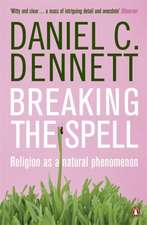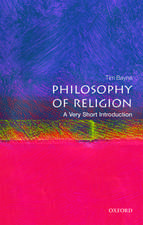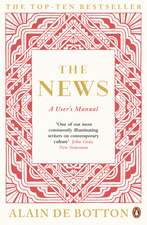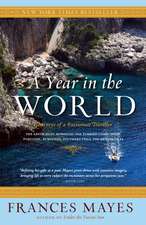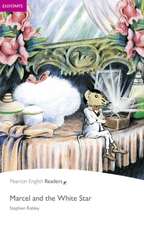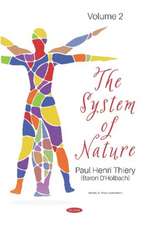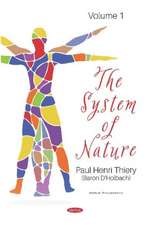Religion for Atheists: A non-believer's guide to the uses of religion
Autor Alain de Bottonen Limba Engleză Paperback – 6 feb 2013
NUMBER ONE INTERNATIONAL BESTSELLER
From one of our greatest voices in modern philosophy, author ofThe Course of Love, The Consolations of Philosophy, The Art of TravelandThe School of Life
'A serious and optimistic set of practical ideas that could improve and alter the way we live' Jeanette Winterson,The Times
'A beautiful, inspiring book... offering a glimpse of a more enlightened path'Sunday Telegraph
'Smart, stimulating, sensitive. A timely and perceptive appreciation of how much wisdom is embodied in religious traditions and how we godless moderns might learn from it'Financial Times
'There isn't a page in this book that doesn't contain a striking idea or a stimulating parallel'Mail on Sunday
Alain de Botton takes us one step further than Dawkins or Hitchens ventured - into a world of ideas beyond the God debate...
All of us, whether religious, agnostic or atheist, are searching for meaning. And in this wise and life-affirming book, non-believer Alain de Botton both rejects the supernatural claims of the major religionsandpoints out just how many good ideas they sometimes have about how we should live.
And he suggests that non-believers can learn and steal from them.
Picking and choosing from the thousands of years of advice assembled by the world's great religions, Alain de Botton presents a range of fascinating ideas and practical insights on art, community, love, friendship, work, life and death. He shows how they can be of use to us all, irrespective of whether we do or don't believe.
| Toate formatele și edițiile | Preț | Express |
|---|---|---|
| Paperback (2) | 69.42 lei 25-31 zile | +25.29 lei 5-11 zile |
| Penguin Books – 6 feb 2013 | 69.42 lei 25-31 zile | +25.29 lei 5-11 zile |
| Vintage Publishing – 7 ian 2013 | 103.72 lei 22-36 zile |
Preț: 69.42 lei
Preț vechi: 82.65 lei
-16% Nou
Puncte Express: 104
Preț estimativ în valută:
13.29€ • 14.44$ • 11.17£
13.29€ • 14.44$ • 11.17£
Carte disponibilă
Livrare economică 03-09 aprilie
Livrare express 14-20 martie pentru 35.28 lei
Preluare comenzi: 021 569.72.76
Specificații
ISBN-13: 9780141046310
ISBN-10: 0141046317
Pagini: 336
Dimensiuni: 135 x 197 x 19 mm
Greutate: 0.29 kg
Editura: Penguin Books
Colecția Penguin
Locul publicării:London, United Kingdom
ISBN-10: 0141046317
Pagini: 336
Dimensiuni: 135 x 197 x 19 mm
Greutate: 0.29 kg
Editura: Penguin Books
Colecția Penguin
Locul publicării:London, United Kingdom
Notă biografică
Alain
de
Bottonis
the
author
ofEssays
in
Love,
The
Romantic
Movement,
Kiss
and
Tell,
How
Proust
Can
Change
Your
Life,
The
Consolations
of
Philosophy,
The
Art
of
Travel,
Status
Anxiety,
The
Architecture
of
Happiness,
The
Pleasures
and
Sorrows
of
Work,
A
Week
at
the
Airport,
Religion
for
Atheists,The
News:
A
User's
Manual,andThe
Course
of
Loveamong
many
others.Alain
is
a
bestselling
author
in
30
countries.
He
lives
in
London,
where
he
runs
The
School
of
Life
and
Living
Architecture.
Extras
from Part One: Wisdom without Doctrine
1.
The most boring and unproductive question one can ask of any religion is whether or not it is true ߝ in terms of being handed down from heaven to the sound of trumpets and supernaturally governed by prophets and celestial beings.
To save time, and at the risk of losing readers painfully early on in this project, let us bluntly state that of course no religions are true in any God-given sense. This is a book for people who are unable to believe in miracles, spirits or tales of burning shrubbery, and have no deep interest in the exploits of unusual men and women like the thirteenth-century saint Agnes of Montepulciano, who was said to be able to levitate two feet off the ground while praying and to bring children back from the dead ߝ and who, at the end of her life (supposedly), ascended to heaven from southern Tuscany on the back of an angel.
2.
Attempting to prove the non-existence of God can be an entertaining activity for atheists. Tough-minded critics of religion have found much pleasure in laying bare the idiocy of believers in remorseless detail, finishing only when they felt they had shown up their enemies as thorough-going simpletons or maniacs.
Though this exercise has its satisfactions, the real issue is not whether God exists or not, but where to take the argument once one decides that he evidently doesn’t. The premise of this book is that it must be possible to remain a committed atheist and nevertheless find religions sporadically useful, interesting and consoling ߝ and be curious as to the possibilities of importing certain of their ideas and practices into the secular realm.
One can be left cold by the doctrines of the Christian Trinity and the Buddhist Eightfold Path and yet at the same time be interested in the ways in which religions deliver sermons, promote morality, engender a spirit of community, make use of art and architecture, inspire travels, train minds and encourage gratitude at the beauty of spring. In a world beset by fundamentalists of both believing and secular varieties, it must be possible to balance a rejection of religious faith with a selective reverence for religious rituals and concepts.
It is when we stop believing that religions have been handed down from above or else that they are entirely daft that matters become more interesting. We can then recognize that we invented religions to serve two central needs which continue to this day and which secular society has not been able to solve with any particular skill: first, the need to live together in communities in harmony, despite our deeply rooted selfish and violent impulses. And second, the need to cope with terrifying degrees of pain which arise from our vulnerability to professional failure, to troubled relationships, to the death of loved ones and to our decay and demise. God may be dead, but the urgent issues which impelled us to make him up still stir and demand resolutions which do not go away when we have been nudged to perceive some scientific inaccuracies in the tale of the seven loaves and fishes.
The error of modern atheism has been to overlook how many aspects of the faiths remain relevant even after their central tenets have been dismissed. Once we cease to feel that we must either prostrate ourselves before them or denigrate them, we are free to discover religions as repositories of a myriad ingenious concepts with which we can try to assuage a few of the most persistent and unattended ills of secular life.
1.
The most boring and unproductive question one can ask of any religion is whether or not it is true ߝ in terms of being handed down from heaven to the sound of trumpets and supernaturally governed by prophets and celestial beings.
To save time, and at the risk of losing readers painfully early on in this project, let us bluntly state that of course no religions are true in any God-given sense. This is a book for people who are unable to believe in miracles, spirits or tales of burning shrubbery, and have no deep interest in the exploits of unusual men and women like the thirteenth-century saint Agnes of Montepulciano, who was said to be able to levitate two feet off the ground while praying and to bring children back from the dead ߝ and who, at the end of her life (supposedly), ascended to heaven from southern Tuscany on the back of an angel.
2.
Attempting to prove the non-existence of God can be an entertaining activity for atheists. Tough-minded critics of religion have found much pleasure in laying bare the idiocy of believers in remorseless detail, finishing only when they felt they had shown up their enemies as thorough-going simpletons or maniacs.
Though this exercise has its satisfactions, the real issue is not whether God exists or not, but where to take the argument once one decides that he evidently doesn’t. The premise of this book is that it must be possible to remain a committed atheist and nevertheless find religions sporadically useful, interesting and consoling ߝ and be curious as to the possibilities of importing certain of their ideas and practices into the secular realm.
One can be left cold by the doctrines of the Christian Trinity and the Buddhist Eightfold Path and yet at the same time be interested in the ways in which religions deliver sermons, promote morality, engender a spirit of community, make use of art and architecture, inspire travels, train minds and encourage gratitude at the beauty of spring. In a world beset by fundamentalists of both believing and secular varieties, it must be possible to balance a rejection of religious faith with a selective reverence for religious rituals and concepts.
It is when we stop believing that religions have been handed down from above or else that they are entirely daft that matters become more interesting. We can then recognize that we invented religions to serve two central needs which continue to this day and which secular society has not been able to solve with any particular skill: first, the need to live together in communities in harmony, despite our deeply rooted selfish and violent impulses. And second, the need to cope with terrifying degrees of pain which arise from our vulnerability to professional failure, to troubled relationships, to the death of loved ones and to our decay and demise. God may be dead, but the urgent issues which impelled us to make him up still stir and demand resolutions which do not go away when we have been nudged to perceive some scientific inaccuracies in the tale of the seven loaves and fishes.
The error of modern atheism has been to overlook how many aspects of the faiths remain relevant even after their central tenets have been dismissed. Once we cease to feel that we must either prostrate ourselves before them or denigrate them, we are free to discover religions as repositories of a myriad ingenious concepts with which we can try to assuage a few of the most persistent and unattended ills of secular life.
Recenzii
“A serious but intellectually wild ride. . . . One has to appreciate his pluck as much as his lucid, enjoyable arguments.” —Miami Herald
“Commonsensical and insightful. . . . The wealth of knowledge and felicity of phrasing that de Botton brings to his task make for a stimulating read.” —Seattle Times
“Quirky, often hilarious. . . . Focusing on just three major faiths—Christianity, Judaism and Buddhism—he makes a convincing case for their ability to create both a sense of community and education that addresses morality and our emotional life.” —Washington Post
“Compelling. . . beautifully and wittily illustrated.” —Los Angeles Times
“A wonderfully dangerous and subversive book.” —San Francisco Chronicle
“A new book by Alain de Botton is always a treat. . . . De Botton is literate, articulate, knowledgeable, funny and idiosyncratic.” —Forbes.com
“De Botton writes at his best when he confronts our abiding human frailty. . . . If only all writers wrote with such unabashedly kind intentions.” —Huffington Post
“Provocative and thoughtful. . . . Particularly noteworthy are de Botton’s insights on what education and the arts can borrow from the formats and paradigms of religious delivery.” —The Atlantic
“The eminently quotable de Botton holds forth on the deliberately provocative premise that ancient traditions can solve modern problems. . . . The premise he is testing is a worthy one: The secular world worships consumerism, optimism, and perfection to its doom, and would do well to make room for a little humility, community, and contemplation instead.” —Boston Globe
“[De Botton] demonstrates his usual urbane, intelligent, and witty prose. . . . This book will advance amicable discussion among both believers and disbelievers.” —Library Journal
“Highly original and thought-provoking. . . . De Botton is a lively, engaging writer.” —Publishers Weekly (starred review)
“Commonsensical and insightful. . . . The wealth of knowledge and felicity of phrasing that de Botton brings to his task make for a stimulating read.” —Seattle Times
“Quirky, often hilarious. . . . Focusing on just three major faiths—Christianity, Judaism and Buddhism—he makes a convincing case for their ability to create both a sense of community and education that addresses morality and our emotional life.” —Washington Post
“Compelling. . . beautifully and wittily illustrated.” —Los Angeles Times
“A wonderfully dangerous and subversive book.” —San Francisco Chronicle
“A new book by Alain de Botton is always a treat. . . . De Botton is literate, articulate, knowledgeable, funny and idiosyncratic.” —Forbes.com
“De Botton writes at his best when he confronts our abiding human frailty. . . . If only all writers wrote with such unabashedly kind intentions.” —Huffington Post
“Provocative and thoughtful. . . . Particularly noteworthy are de Botton’s insights on what education and the arts can borrow from the formats and paradigms of religious delivery.” —The Atlantic
“The eminently quotable de Botton holds forth on the deliberately provocative premise that ancient traditions can solve modern problems. . . . The premise he is testing is a worthy one: The secular world worships consumerism, optimism, and perfection to its doom, and would do well to make room for a little humility, community, and contemplation instead.” —Boston Globe
“[De Botton] demonstrates his usual urbane, intelligent, and witty prose. . . . This book will advance amicable discussion among both believers and disbelievers.” —Library Journal
“Highly original and thought-provoking. . . . De Botton is a lively, engaging writer.” —Publishers Weekly (starred review)
Descriere
Descriere de la o altă ediție sau format:
De Botton's bold and provocative book argues that readers can benefit from the wisdom and power of religion--without having to believe in any of it. He suggests that rather than mocking religion, agnostics and atheists should instead steal from it.
De Botton's bold and provocative book argues that readers can benefit from the wisdom and power of religion--without having to believe in any of it. He suggests that rather than mocking religion, agnostics and atheists should instead steal from it.


